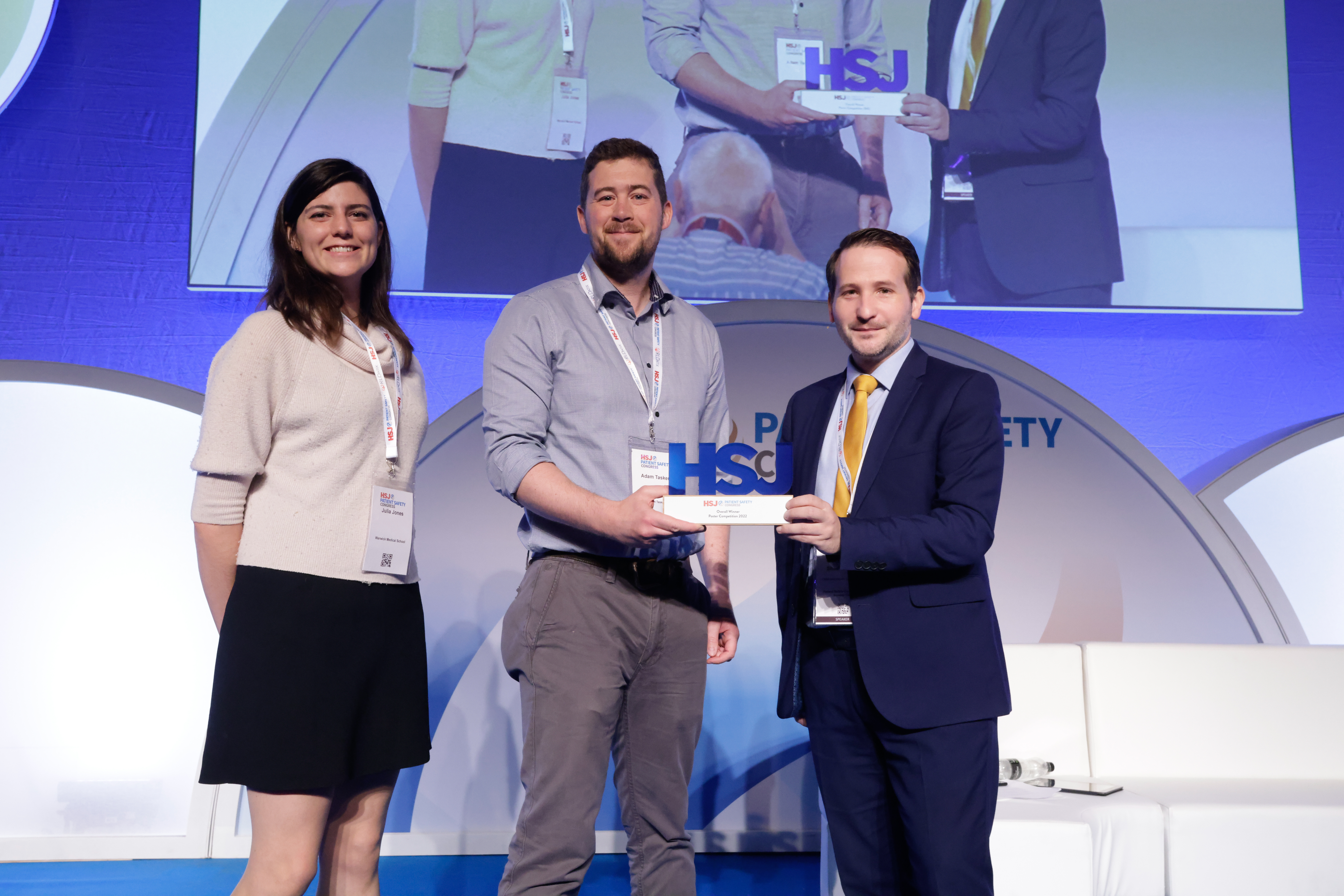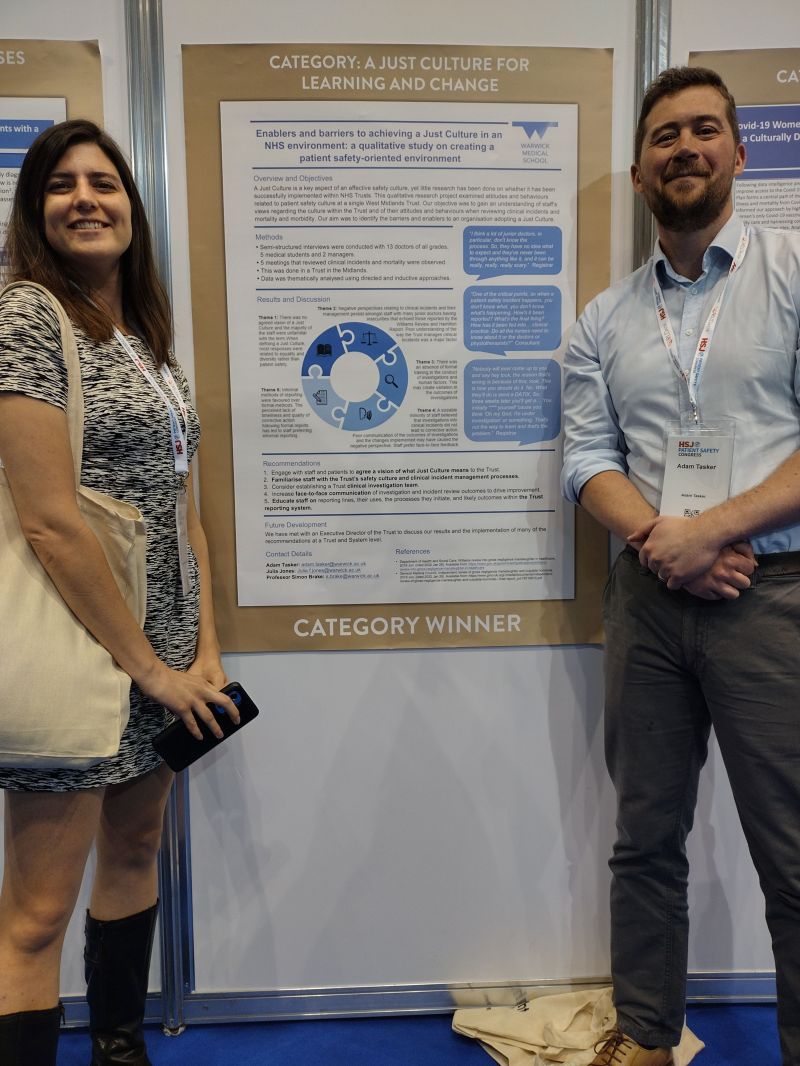Health Service Journal Patient Safety Congress Awards
Congratulations to Adam Tasker and Julia Jones on winning best poster at the Health Service Journal Patient Safety Congress earlier this year. The awards comprised ten categories. They won the ‘Just Culture’ category and were voted the best overall by their peers, which is an excellent achievement.
The award is the culmination of months of hard work for their Student Selected Component (SSC2) project on their MB ChB programme, where the pair undertook research within a regional Trust. Their work assessed the progress that was being made to create a just culture, where patients and doctors are treated fairly, issues are reported and dealt with in a manner where lessons are learned, and appropriate measures are put in place to avoid reoccurrence. This was particularly challenging as the work had been undertaken at a time when Covid restrictions were in place across the NHS and there was no active student-led research taking place at the time. Historically, some Trusts have reported a blame culture and a lack of transparency, and the students felt it was important to identify to what extent this was the case in their chosen Trust.
Professor Simon Brake, their academic supervisor, who helped secure them the project and made the necessary introductions through his NHS network said, “It is rare for students to carry out research of this scale for a SSC2 project. The quality of their work was evident when they received a First for their write up. It was so successful because it focused on direct and tangible outcomes for patients and doctors. The work has led to real improvements. Trusts are moving away from the blame culture of old and introducing more transparency to dealing with issues.”
The pair were particularly well placed to carry out the project as final year medical school students but also as individuals who had gathered experience from previous work roles. Their previous careers enabled them to have a good understanding of what was required and the skills and knowledge to undertake the research.
Adam had been an officer in the Royal Navy and had served in the Armed Forces for 16 years. He already had an interest in the concept of Just Culture and had experience of how it worked from the aviation industry. Julia had worked for Tesco as a Project Manager making supply change efficiencies and improvements.
They both made the switch to medicine as they wanted to make a meaningful contribution to society and see the impact of their work, change people’s lives. Adam had been inspired by the medical training he had received while in service and Julia had been given a positive insight into a medical career by her husband.
Speaking about the importance of the research, Adam said, “It is important to understand how faults are reported and dealt with to ensure the best outcomes for patients and medical staff. We undertook qualitative research to consider what the enablers and barriers are in developing a just culture. We know that most people essentially try to do the right thing, but mistakes happen. It is often due to factors such as issues with skill gaps or lapses in judgement, and in these cases re-training or coaching would be more helpful in correcting the situation than disciplinary action.”
Among their recommendations was for junior doctors to be part of the clinical incident review process to improve transparency and increase familiarity with the people and the systems. Julia said “It is important to build faith amongst staff so that if they do see something wrong and report it, they know something will happen. We found there were some insecurities around more junior staff who felt they may be judged if they make reports. They are only in the Trusts for four-month periods and need a positive reference from their consultants and may feel that they don’t want to rock the boat or be seen as a troublemaker. However, their insights are still important and should be raised.”
They presented their work to the Medical Director of the Trust who received it favourably and they proceeded to apply to get it published and to attend conferences including the HSJ Patient Safety Congress to present their work.
In terms of their future plans, they are awaiting notification of publication of their research, working with Health Services Journal on an article and will be collaborating with a high- profile speaker on a future Dean’s Distinguished Lecture.
Simon Brake concluded “The students have started to shape their futures by undertaking such relevant research before they start their foundation training. They have brought together the skills and experience that they had developed before starting their medical course and used the knowledge they have since gained to deliver. I have enjoyed supporting them and wish them all the very best for the future which I am sure will be very bright.”


